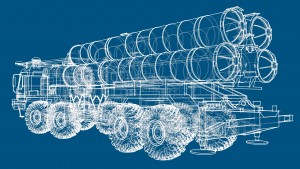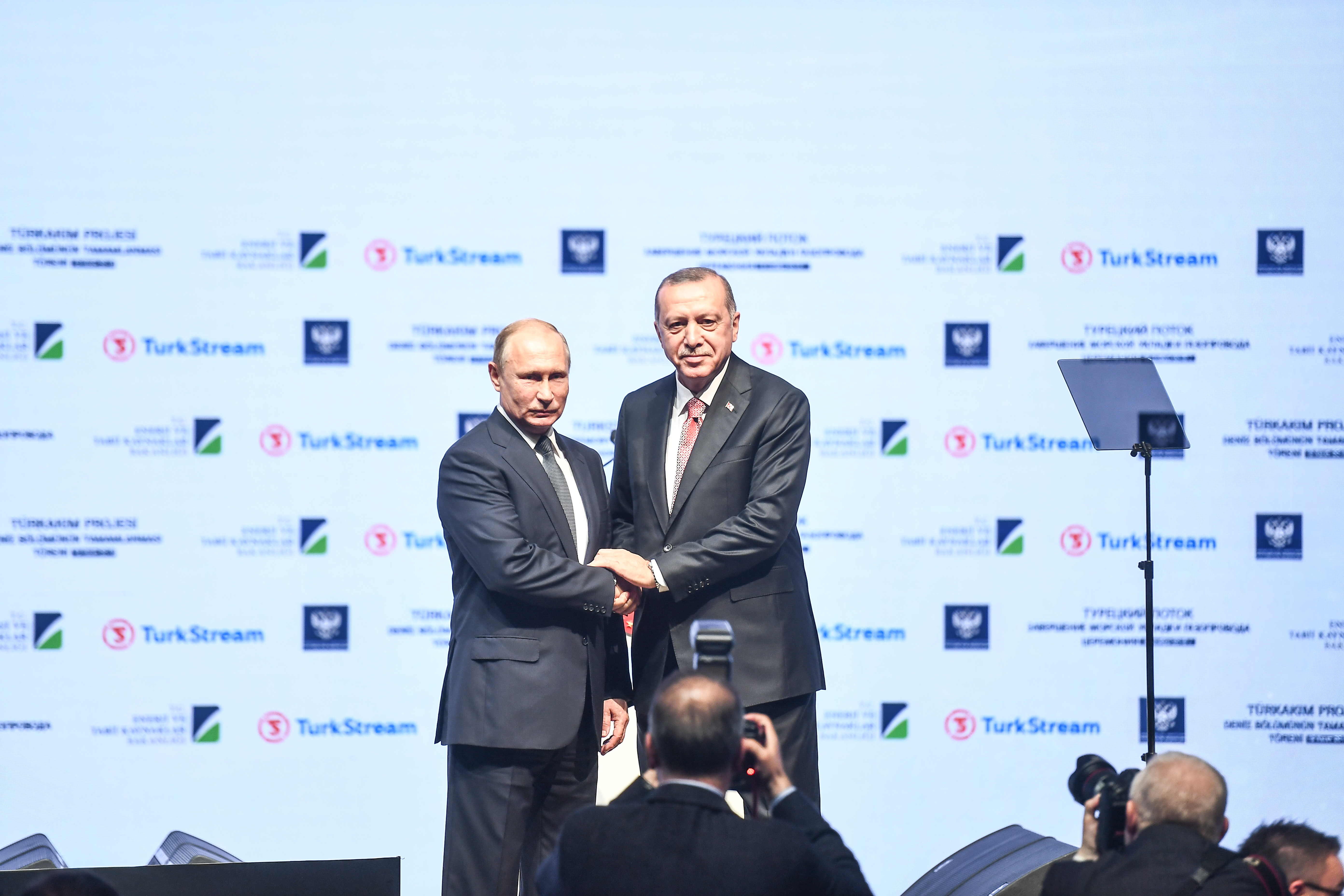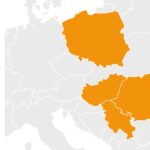By Hamdi Firat Buyuk| Sarajevo
Erdoğan’s defeat in local elections signals his weakening in domestic politics, while Turkey is becoming Russia’s political hostage in its foreign policy, as the Kremlin’s hand strengthens.
In the latest local elections on 31 March, Turkish President Recep Tayyip Erdoğan faced a major defeat in an election for the first time in his 17-year-long rule. A second loss in Istanbul, to the unified opposition’s joint candidate Ekrem İmamoğlu, struck another blow, but also made İmamoğlu a future candidate in the next presidential elections.
Since then, Erdoğan’s problems have only multiplied. The economic crisis has deepened, and its effects – including a halt to growth, the unstoppable loss in value of the Turkish currency, high inflation and unemployment rates – are being felt by ordinary people. While the opposition parties consolidate their power, another major hit came from within his ruling Justice and Development Party (AKP), where senior politicians including former president Abdullah Gül, the former vice PM Ali Babacan and former premier Ahmet Davutoğlu left Erdoğan’s party ranks and decided to pave their own ways.
By this, President Erdoğan has also lost his most important resource, namely support from the Turkish electorate, for his bold foreign policy manoeuvres in recent years. Once the West’s trustworthy ally, the gatekeeper and base for its eastern flank, Turkey started to pivot towards Russia and Russian interest mostly because of ongoing military conflicts in the Middle East, the EU’s decreasing normative power and Turkey’s deteriorating relations with the West amidst Erdoğan’s worsening record on human rights, democracy and the rule of law.
Turkey started to pivot towards Russia and Russian interest mostly because of ongoing military conflicts in the Middle East.
Turkey’s purchase of Russian high-tech S-400 missile systems sparked tension all over the globe, since by doing so Turkey became the first NATO member country to own this superior Russian technology. The allies objected to the purchase by emphasising that Russia could now access NATO radar and servers operating on Turkish soil. However, this is just the tip of the iceberg. Russia’s influence on Turkey runs well beyond the question of the missile systems. Russia is gaining increasing influence over the country’s domestic politics, energy sector and economy, as well as its relations with the Western alliance, its involvement in the Middle East, the Balkans, the Black Sea and elsewhere.
Playing with the Russian bear
President Erdoğan behaves as if he is trying to replace the West with Russia. Even the crisis caused by the downing of a Russian jet in 2015 was overcome in a short time thanks to the two countries’ mutual interests. Also, whereas there is no possibility that the West would agree to the precautions which Erdoğan took after the failed coup attempt in 2016 (critics say that he has been using the events as an excuse to consolidate his power and diminish the opposition), in contrast to the West, Russia simply does not care.
Erdoğan’s government has tried to show Turkey’s citizens that relations with Russia are running well in every aspect. However, the relations between the two countries are mostly in favour of Russia. It is very hard to take something from the rampaging Russian bear without scratches and injuries. While Erdoğan has received hardly anything from Russia, Putin enjoys Erdoğan’s generous compromises and offers.
Firstly, Turkey’s purchase of the S-400 missiles did not shake only NATO. Other countries in the world which have good relations with the US have started considering the purchase of S-400s and other Russian weaponry, since they found the US’s response weak, and feel encouraged to try something different. India has recently announced that it is interested in deploying S-400s, and several other countries in the Middle East have followed suit. This has given Russia a promotional boost which it could not have achieved alone – let alone the billions of euros paid by Turkey, in a deal considered by many as murky and overly expensive.
Moreover, Erdoğan’s interest in obtaining Russian weaponry did not end with the purchase of the S-400s. As the two leaders announced at an arms fair in Russia, Turkey is now planning to deploy Russian fighter jets after the US kicked Turkey out of the F-35 fighter jet programme for deploying the S-400s.

Mobile surface-to-air missile system, launch vehicle © Photo by Shuripusta on Shutterstock
Secondly, Putin is strengthening his hand over energy in Turkey. Russian companies are building a controversial nuclear power plant at Akkuyu, Mersin, which will provide an important share of energy consumption for Turkey. This is strategic investment in a technology that is generally acknowledged to be outdated and harmful to the environment. Moreover, Ankara is interested in having another plant built after the one in Akkuyu.
Putin has also created the Turkish Stream project, a pipeline which can serve as an alternative to Ukraine in order to send Russian gas to Europe. This will make the Russian energy market more stable while expanding Russian influence further. Countries in the Balkans and Central Europe are currently competing to be part of the new pipeline’s route. Furthermore, according to claims which Erdoğan has not denied, Russia will take over the management of Mersin Port, which alone hosts nearly 10 per cent of Turkey’s trading.
What has Erdoğan received in return for all of these concessions? The list is rather short. Erdoğan has been allowed to conduct several military operations in Northern Syria. The Turkish armed forces and Ankara-sponsored rebels control the north-western part of Syria, which has now become the final stronghold against the Assad regime. However, Assad’s forces – which are supported by Russia – are advancing further north every day, and there is now a risk that Turkish and Syrian-regime forces will clash in the field. Russian military police have started to guard Turkish army posts in northern Syria in order to prevent the two coming head-to-head.
In Syria, Turkey’s hand is weakening, and Turkish soldiers are also at risk of being caught in a trap. Turkey’s success and presence in Syria depend on Russia’s goodwill. Furthermore, the advance of the Syrian regime’s forces (as well as Turkish ones) have caused another wave of refugees, hundreds of thousands of whom are now waiting on the borders.
Becoming Russia’s hostage
Russia’s gains are not limited only to those already discussed. Turkey and Russia have positioned themselves in different camps for decades, and they still have many disagreements over international issues and foreign policy priorities. In this vein, Moscow now scores strategic points over Ankara, its own position and that of its proxies consolidate, whereas Turkey bears all the negative consequences and by avoiding to do anything against Russian interest, it becomes a political hostage of Russia.
In the Black Sea. Turkey had always paid attention to the Crimean Tatars because of historical connections and its own large Crimean Tatar populations. When Russia annexed Crimea, the Tatars were one of the groups that suffered, community leaders were arrested and the rights of the peninsula’s historic minority were seriously violated.
Turkey, on the other hand, tried not to anger Russia and kept its voice very quiet on the issue, unlike its previous stance. Furthermore, although a NATO member country, Turkey has not been meeting its responsibilities in the Black Sea, even though it is the littoral countries which will be the first to feel Russia’s strong hand, if something should happen. Turkey does not fully participate in patrols in the Black Sea; also, the size and effectiveness of the Turkish forces were seriously damaged after the failed coup attempt in 2016.
The Erdoğan government fired many army officers, including the majority of those serving in NATO. Turkey cannot find officers who know the NATO alliance or have strategic planning skills and, even more importantly, speak foreign languages. In a final attempt to fill the empty places, the Turkish government changed its regulations and abolished the requirement of knowing a foreign language for becoming an attaché.
In short, Ankara currently does not (or cannot) implement Turkey’s historically Western-oriented state policies. If it does anything against Russia’s will, Moscow can strike back with means which Ankara cannot resist and Erdoğan is not in a position to use the EU and the US as counterweights, because he has lost his credibility and cogency in the eyes of the Western world.
Turkey’s loneliness under Erdoğan’s rule has become even more obvious after Turkey’s Operation Peace Spring against the Kurdish militants in North-East Syria. Following Trump’s sudden decision to withdraw from Syria and Turkey’s operation, the Western world criticised Turkey’s move, regardless of security concerns and Ankara’s attempts at justifying the military operation. The vote in the US Congress on October 29 to place new sanctions on top Turkish statesmen also showed how angry US lawmakers were at Erdogan: 403 voted for the sanctions and only 16 voted against.
From Ankara’s perspective, it may be hard to accept that the Kurdish militants were seen as a more valuable partner than Turkey, which is still a NATO member and hosts several NATO military bases. Therefore, Turkey sought to side with Russia and create a safe zone in Syria.
Weaponising Syrian refugees
As a result of its deep involvement in the Middle Eastern conflicts, Turkey is now hosting more than 4 million refugees (3.6 million of whom are Syrians). Amidst developments in Syria, a new refugee wave is about to hit Turkey, estimated at a million people. However, Turkish politics, economy and more importantly society cannot handle any more immigrants. Erdoğan is well aware of this and acts against refugees in order to calm the electorate. He also has to do this because of the alliance with nationalist parties which he established before the presidential elections.
The Turkish government has started saying that the borders will be opened for those who want to go to Europe. This threat is heard loudly in European capitals, as well as in the small Western Balkan nations. Erdoğan wants to show that Turkey is still an important partner and that Europe cannot do without him so easily. However, these threats could be the last card which Erdoğan has left to play; that is why he will not lose it by opening the borders.
Erdoğan has asked the EU to fulfil its promises, especially regarding financial aid. It should be noted that the EU’s policy toward the refugee crisis has been a failure. The EU did not meet its financial commitments and did not take in as many of the refugees as had been agreed.
It is unlikely that Erdoğan actually will open the borders, as he has threatened several times. However, it should be remembered that even decreasing security on the borders could cause a disaster. Erdoğan and his associates know very well that this is the nightmare of Europe, and so they will continue to use this at all times he deems it appropriate.
Relations between the EU and Turkey cannot improve as long as Erdoğan’s current authoritarian regime continues – something which looks likely, as it has been consolidated by the new executive presidential system in which there are no checks and balances.
However, Turkey and Europe are also unable to abandon each other so easily. The current rapprochement with Russia has harmed Turkey’s relations with NATO and the US; the recent deployment of S-400s in particular has forced the US to rethink everything in its relationship with Turkey. Restoring trust in their mutual relations will require a long time and present a wide range of challenges.
Erdoğan’s loss in the local elections and his decreasing popularity may lead to further radicalisation in Turkey’s international politics, since Erdoğan might use international crises as a tool to boost his fledgling popularity at home. He has done this several times already, and now he may do so again, since he has never been so close to the edge of the abyss.
The recent Turkish military operation against the outlawed Kurdistan Workers’ Party’s Syria branch Syrian Democratic Forces in Northern Syria is proof that Erdoğan might be thinking of a massive military campaign to address security concerns as well as for consolidating his electorate at home.
When you dance with a bear, only the bear can decide when the dance will end.
Turkey has been increasingly integrated with the West since the fall of the Ottoman Empire. The new Turkish Republic designed all its political, economic, security, educational and other institutions on the basis of this engagement. Therefore, Turkey’s institutions and also an important part of its society do not understand or accept Erdoğan’s short-term, pragmatic and badly-planned policies.
Turkey has previously gone through turbulent times with the West and used the East as an alternative, as it did during the Cyprus crisis in 1974. However, the balance between the two was never upset. Nevertheless, this time it seems that Erdoğan may tip the scales. Additionally, rather than the country’s institutions and parliament, it is Erdoğan and his close associates, including his family members, who are the only decision makers, something which makes the country’s decisions more and more unpredictable.
In conclusion, Erdoğan’s rapprochement with Russia is a dangerous game which has limited the Turkish leader’s manoeuvres, not only in international politics, but also domestically. One should always keep the famous Russian saying in mind: when you dance with a bear, only the bear can decide when the dance will end. Even the country’s historical state policies and alignments are at risk.
The last local elections showed the world that the Turkish people’s demands for democracy, freedom and the country’s historical position in the Western world are still very much alive, and there is still hope. However, even if Erdoğan should continue to lose at home and around the world, the price will be paid by the Turkish people, as well as the ones who succeed him.
HAMDI FIRAT BUYUK is a Sarajevo-based Turkish political analyst and journalist. He is a PhD candidate in Political Science at the University of Sarajevo.




